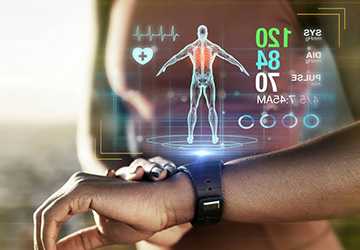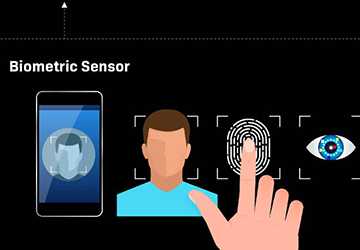Smart Wearables Revolutionizing Personal Health Monitoring
In recent years, intelligent wearables have metamorphosed the technosphere, presenting avant-garde solutions for various facets of life. One of the most transformative applications of these devices is in personal health monitoring. By seamlessly amalgamating technology with healthcare, intelligent wearables are revolutionizing how we scrutinize and administer our health. This exposition elucidates the ramifications of wearables in health monitoring, highlights trends in intelligent health devices, and delves into the future of personal health tech.

The Ascendancy of Wearables in Health Monitoring
Enhancing Diurnal Health Surveillance
Wearables in health monitoring have become indispensable apparatuses for individuals keen on sustaining a healthful lifestyle. These devices meticulously track an array of physiological metrics, such as:
- Cardiac rhythm
- Nocturnal repose patterns
- Physical exertion
- Blood oxygen saturation levels
By providing real-time data, wearables in health monitoring empower users to make wise decisions about their health. This continuous health surveillance allows for the intelligent detection of potential health anomalies, enabling timely interventions.
Chronic Malady Management
Chronic disorders, such as diabetes mellitus and hypertension, necessitate incessant surveillance. Wearables in health monitoring offer an efficacious modality for keeping track of vital signs and managing these conditions. For instance, wearable glucose monitors can provide continuous glycemic readings, aiding diabetic patients in maintaining optimal glycemic indices.
Mental Health Monitoring
Beyond somatic health, wearables in health monitoring are also making strides in mental well-being. Devices with sensors can monitor stress echelons and emotional vicissitudes and even detect incipient signs of melancholia. This holistic health monitoring approach ensures that human and psychological well-being are addressed.
Trends in Smart Health Devices
Advanced Sensor Technology
One significant trend in smart health devices is the advancement in sensor technology. Modern wearables have susceptible sensors that can detect minute physiological vicissitudes. These sensors provide precise data, augmenting the reliability of intelligent wearables in health monitoring.
Integration with Artificial Intelligence
Another notable trend is incorporating artificial intelligence (AI) with smart health devices. AI algorithms meticulously analyze the data amassed by wearables, providing bespoke health insights and recommendations. This intelligent analysis helps users comprehend their health better and take proactive measures.
Wearables for Specific Health Conditions
The market is witnessing a surge in intelligent health devices designed for specific conditions. For example, wearable ECG monitors cater to individuals with cardiac conditions, while devices with fall-detection features are intended for older people. These specialized wearables address unique health exigencies, making healthcare more personalized and productive.
Future of Personal Health Tech
Predictive Health Monitoring
The future of personal health tech lies in predictive health monitoring. By analyzing historical health data, intelligent wearables can predict potential health perturbations before they manifest. This proactive approach will revolutionize preventive healthcare, reducing the burden on healthcare systems and ameliorating overall health outcomes.
Integration with Healthcare Systems
Integration with healthcare systems is paramount for wearables in health monitoring to attain their full potential. Future smart health devices will seamlessly share data with healthcare providers, enabling continuous monitoring and timely interventions. This symbiosis between technology and healthcare will lead to more productive and effective patient care.
Enhanced User Experience
The future of personal health tech also promises an augmented user experience. Wearables will become more comfortable, stylish, and user-friendly. Innovations in battery longevity and waterproofing will render these devices more practical for quotidian use. Moreover, data privacy and security advancements will safeguard users' health information.
Biometric Authentication
Wearables in health monitoring are now incorporating biometric authentication for enhanced security. Utilizing features such as dermal ridge analysis and facial topology recognition, these smart health devices ensure that only authorized users can access sensitive health data.

Real-Time Telemetry
A paramount development in smart health devices is the capability for real-time telemetry. This permits uninterrupted transmission of health data to healthcare practitioners, facilitating instantaneous interventions when exigent.
Multi-Functionality
Contemporary smart wearables are engineered to be multi-functional, integrating diverse health monitoring capabilities into a singular device. For instance, a smartwatch might amalgamate cardiac rhythm monitoring, ECG, oxygen saturation, and somnolence analysis.
Benefits of Smart Wearables in Health Monitoring
Personalized Health Insights
Wearables in health monitoring offer personalized health insights tailored to an individual's unique needs. These devices can provide actionable recommendations by analyzing data trends and helping users achieve their health goals.
Empowering Users
Smart health devices empower users to take control of their health. With access to real-time health data, individuals can make informed decisions about their lifestyle and healthcare. This empowerment leads to better health outcomes and a higher quality of life.
Reducing Healthcare Costs
Wearables in health monitoring can significantly reduce healthcare costs by promoting preventive healthcare. Early detection and management of health issues prevent costly medical interventions, benefiting individuals and healthcare systems.
Challenges and Considerations
Data Accuracy
While wearables in health monitoring offer numerous benefits, data accuracy remains a concern. Ensuring these devices provide reliable and accurate readings is crucial for their effectiveness.
Privacy and Security
The collection and storage of health data raise privacy and security concerns. Manufacturers of intelligent health devices must prioritize data protection to gain users' trust and comply with regulations.
Accessibility
Another challenge is making smart wearables accessible to all. Efforts should be made to ensure these devices are affordable and available to individuals from all socioeconomic strata.
Ethical Considerations
Data Privacy and Consent
As wearables in health monitoring collect sensitive health data, ensuring data privacy and obtaining informed consent from users is paramount. Ethical frameworks and regulatory standards must be established to protect users' rights and maintain trust in intelligent health devices.
Addressing Bias in Health Algorithms
The algorithms utilized in smart health devices must be engineered to eschew bias and ensure equitable treatment for all users. This involves testing algorithms on diverse populations and continually refining them to mitigate emerging biases.
Ensuring Accessibility and Inclusivity
To maximize the benefits of intelligent wearables, efforts must be made to ensure their accessibility and inclusivity. This includes designing devices that accommodate various needs and abilities and making them affordable for multiple socioeconomic groups.
Conclusion
Smart wearables are revolutionizing personal health monitoring, offering innovative solutions for tracking and managing health. By staying abreast of trends in intelligent health devices and looking towards the future of personal health tech, we can anticipate a healthcare landscape where technology and healthcare seamlessly integrate. As we embrace these advancements, it is essential to address the challenges and ensure that the benefits of intelligent wearables are accessible to all.